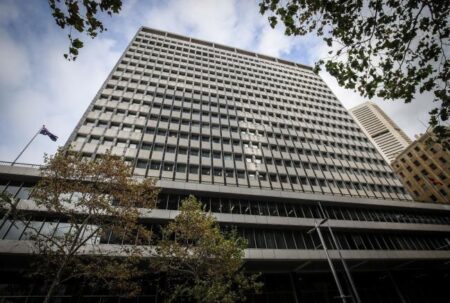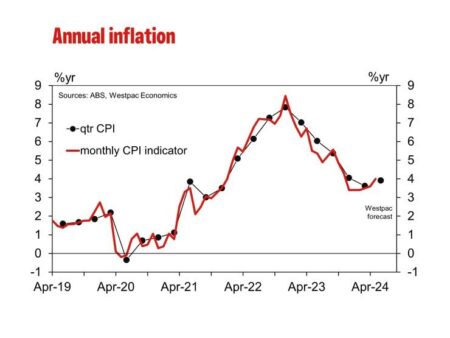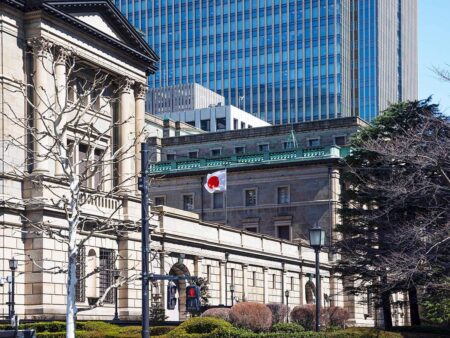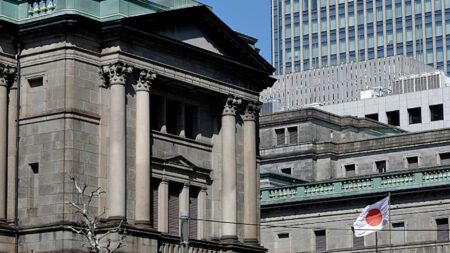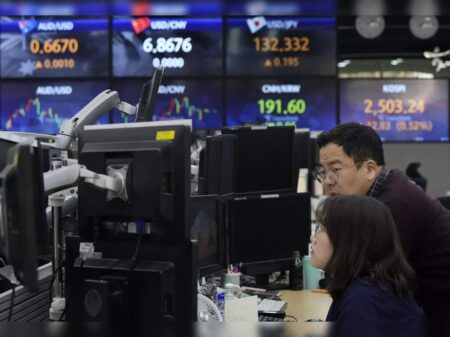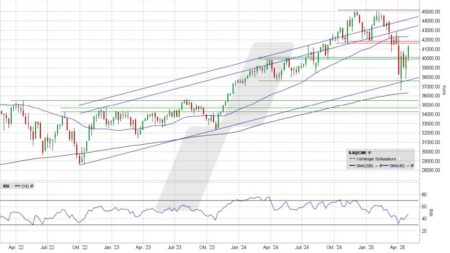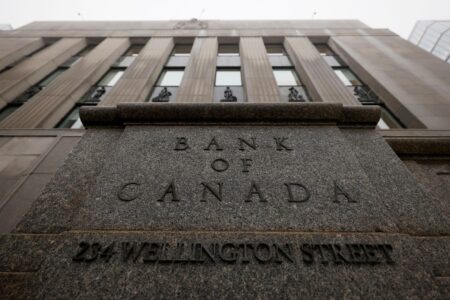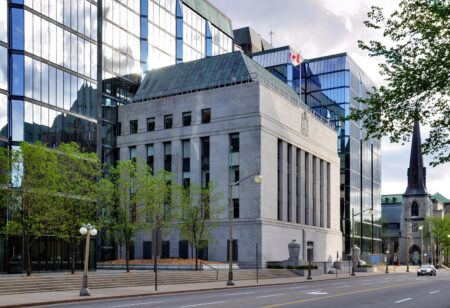Australia’s central bank caught markets off guard by holding interest rates steady at 3.85%, bucking widespread expectations of a hike. The Reserve Bank highlighted economic uncertainty and easing inflation as the main reasons for pressing pause this time around
Browsing: interest rates
Breaking: In a surprising twist that stunned markets, the Reserve Bank of Australia has chosen to keep interest rates unchanged in a split decision, going against widespread predictions of a cut amid persistent economic uncertainty
Australia’s CPI inflation slowed more than expected in May, easing pressure on the Reserve Bank and sparking renewed market optimism about potential rate cuts. Investors are now eagerly watching upcoming economic data for new clues
The Bank of Japan held interest rates steady and announced a gradual easing of its bond purchase taper, signaling a cautious approach amid ongoing economic uncertainties, according to the Caledonian Record
The Bank of Japan kept interest rates unchanged and announced plans to slow down tapering bond purchases, signaling a cautious approach amid ongoing economic uncertainties. Markets are eagerly awaiting the next move
Japan’s ultra-long government bonds slipped as stock markets soared, capturing the cautious mood of investors amid ongoing stimulus discussions. Traders navigated the delicate balance between potential policy shifts and their impact on yields and equities
The RBA is poised to deliver rapid rate cuts if economic instability arises from Trump’s policies, according to minutes that highlight a determined commitment to strengthening Australia’s economy amid global uncertainties
Brazil’s economy stunned analysts by posting robust growth despite high interest rates. Bloomberg reports that strong consumer demand and export gains are fueling a surprising economic surge.
The Bank of Spain has raised a red flag about a slowdown in the growth of lending income, signaling potential hurdles for the financial sector. This shift could pose challenges to economic recovery efforts, sparking worries among both investors and policymakers.
In Italy, the spotlight on “lo spread”—the interest rate gap between Italian and German bonds—has started to fade as fresh priorities take center stage. Analysts suggest that this change signals deeper worries, emphasizing the importance of stability that goes beyond just figures
Japan’s recent bond sell-off has sent shockwaves through global markets, igniting concerns among investors. As the world’s third-largest economy faces the pressures of rising interest rates, the fallout could ripple all the way to the U.S., putting Trump’s economic narrative to the test.
China’s leading state banks are poised to lower deposit rates this Tuesday, according to insider sources. This pivotal change in the country’s monetary policy is designed to invigorate lending and spark economic growth as the nation navigates through persistent economic hurdles
Australia’s job market experienced a remarkable surge in April, with impressive job gains that took many by surprise. Yet, analysts caution that this strong performance might not be enough to stop the Reserve Bank from slashing interest rates next week, as ongoing inflation and economic pressures continue to loom large.
Dow Jones futures surged as investors eagerly anticipated fresh U.S.-China trade discussions. Excitement is in the air as all eyes turn to Federal Reserve Chairman Jerome Powell, whose forthcoming remarks could sway market sentiment amidst the backdrop of ongoing economic uncertainty.
Asian markets saw a retreat from earlier gains following optimistic reactions to China’s rate cuts and ongoing talks between U.S. officials. Investors remain cautious amid global economic uncertainties, reflecting a complex landscape for regional stocks.
The Bank of Canada’s governing council recently explored the idea of slashing interest rates once more in April, highlighting their persistent worries about economic growth. This discussion is part of a larger strategy aimed at tackling inflation while bolstering the Canadian economy.
In a recent announcement, the Bank of Japan (BOJ) has chosen to keep its interest rates steady, highlighting the current economic stability. However, officials voiced their worries about looming risks from US tariffs that could pose challenges to Japan’s export-driven economy.
France has raised a red flag, cautioning that dismissing Federal Reserve Chair Jerome Powell could spell trouble for the U.S. dollar and shake up the economy. French economic officials warn that this drastic step might undermine market confidence and trigger financial upheaval.
The Bank of Canada has chosen to keep its interest rates steady as it carefully evaluates the effects of recent tariffs on the economy. This decision highlights the central bank’s commitment to striking a balance while addressing new economic hurdles.
Analysts at Desjardins predict a modest decline in the Bank of Canada’s interest rate. This careful strategy highlights the persistent economic hurdles we face, all while striving to uphold stability within our financial system.

